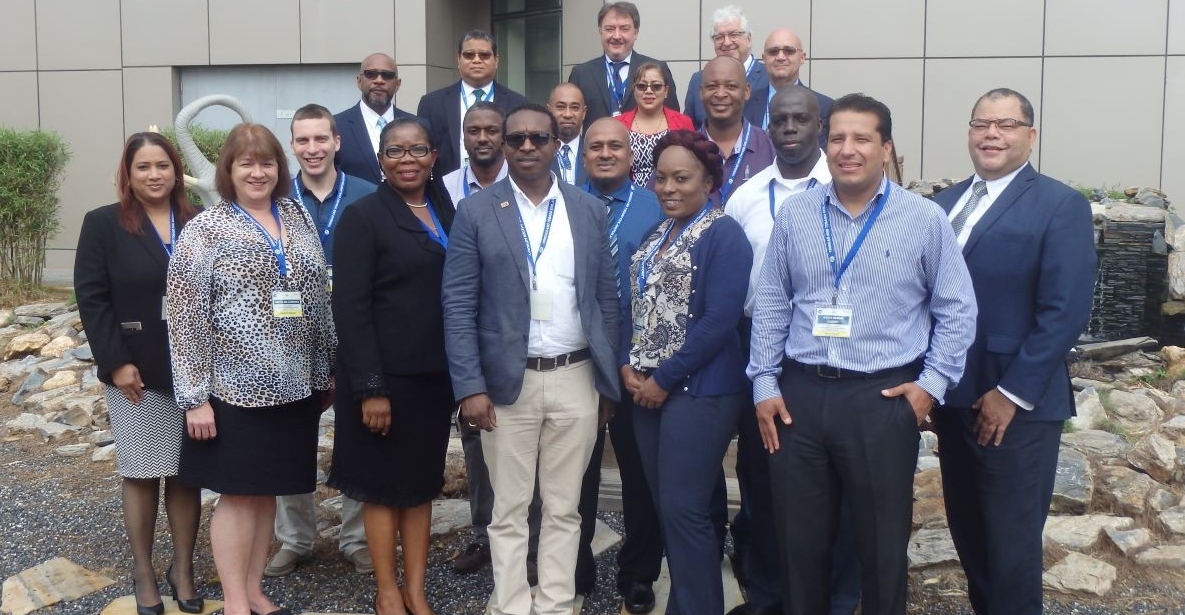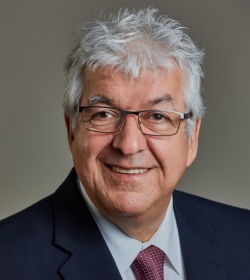In addition to providing high-level development in aviation security, the Aviation Security Professional Management Course (AVSEC PMC) provides industry professionals with a means to close the skill gap between aviation security and management competencies. Offered in collaboration between the International Civil Aviation Organization (ICAO) and the John Molson Executive Centre (JMEC), the AVSEC PMC has provided civil aviation security development since 2004.
“I think the program benefits people because it gives them two completely different elements of training. It gives the AVSEC portion, but it also gives them the management tools,” says Tara Devine, who completed the program in 2007, and is currently an instructor for the aviation security portion of the program.



 Tara Devine
Tara Devine
 The first face-to-face of the 2019 AVSEC Port of Spain–Montreal session.
Instructors: Luca Boccadoro (back left) and Jean-Marc Trottier (back right)
The first face-to-face of the 2019 AVSEC Port of Spain–Montreal session.
Instructors: Luca Boccadoro (back left) and Jean-Marc Trottier (back right)
 Jean-Marc Trottier
Jean-Marc Trottier
 Bruno Thuot
Bruno Thuot
 Walter D. Parks III
Walter D. Parks III


